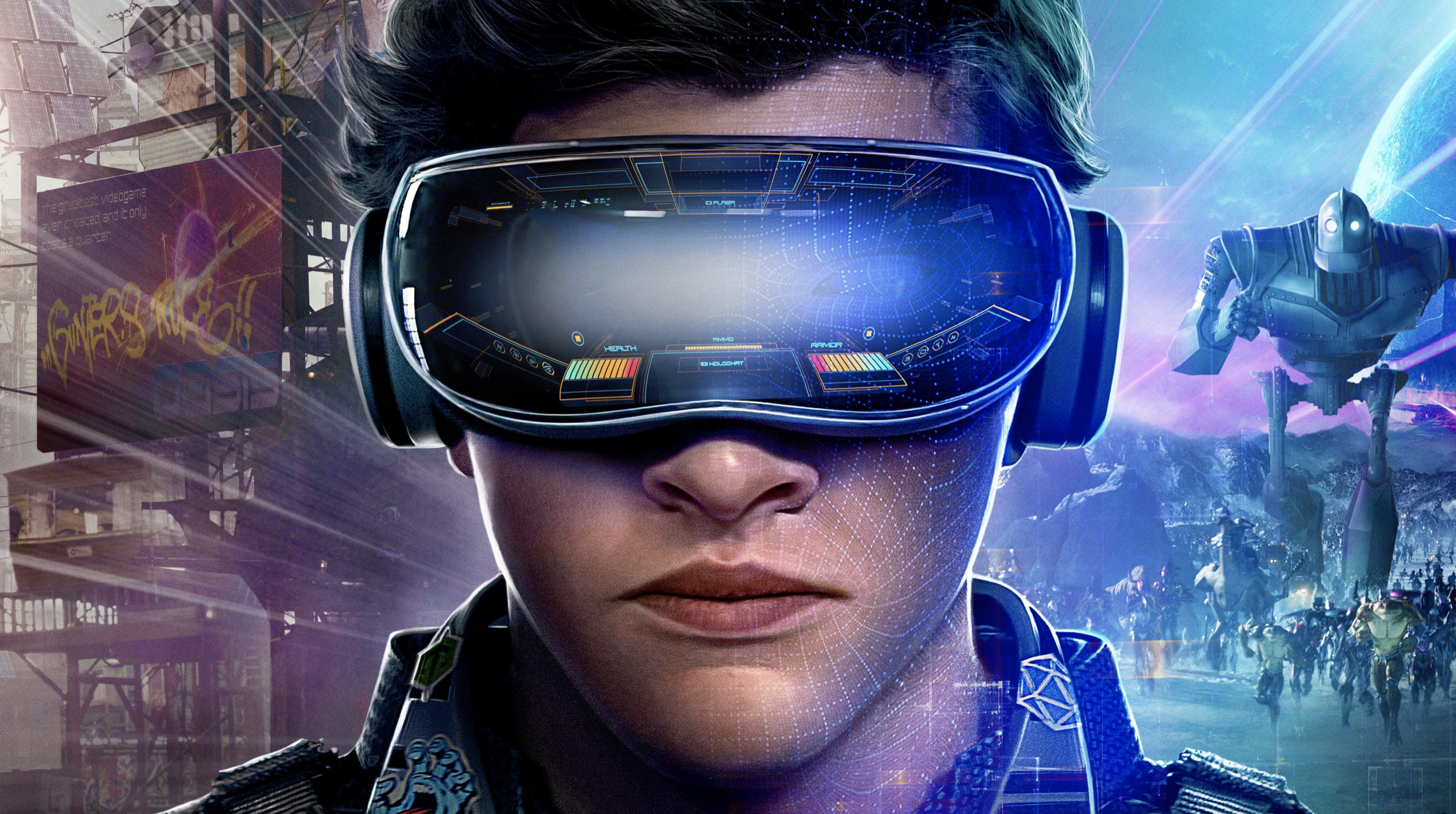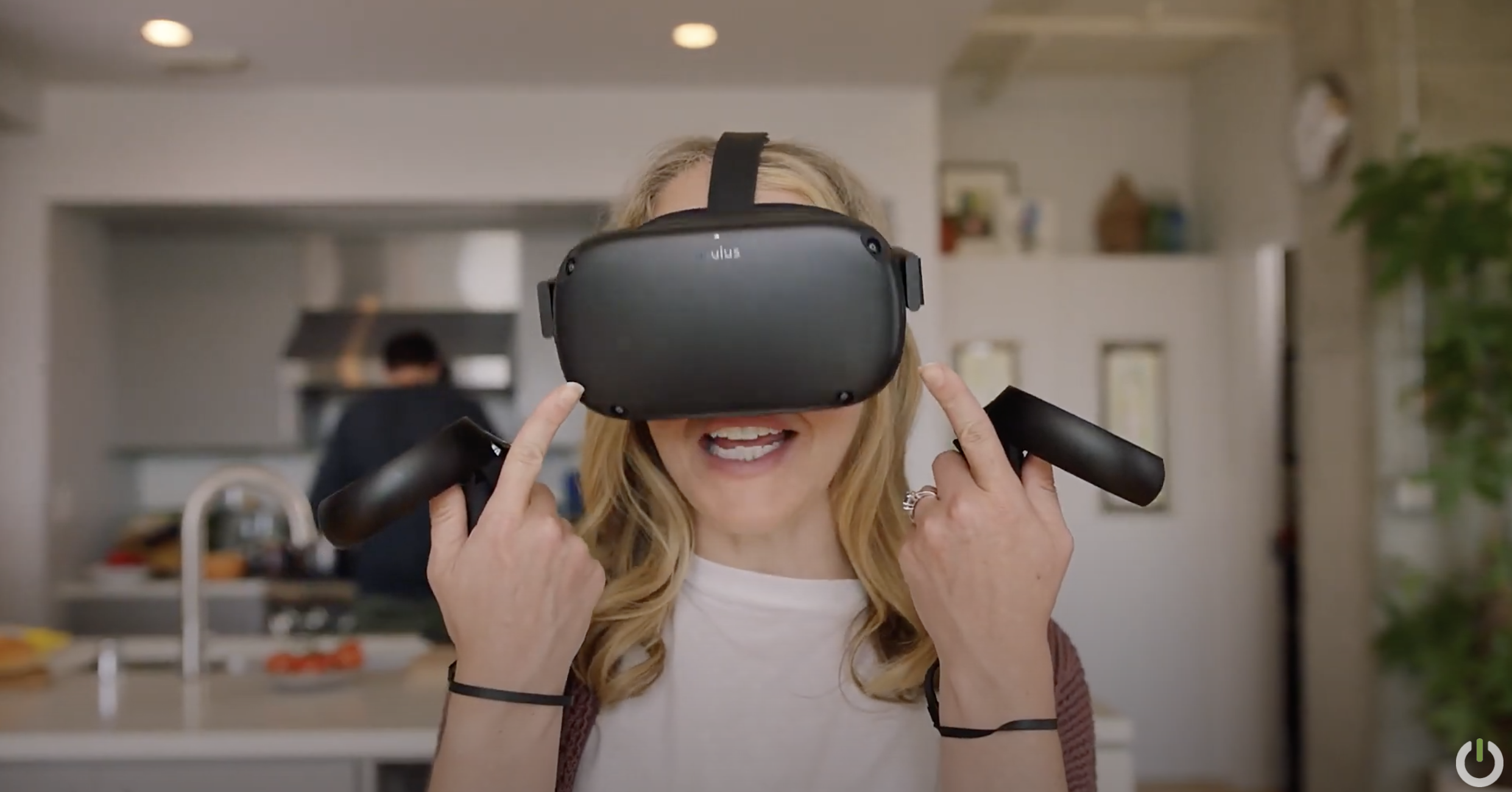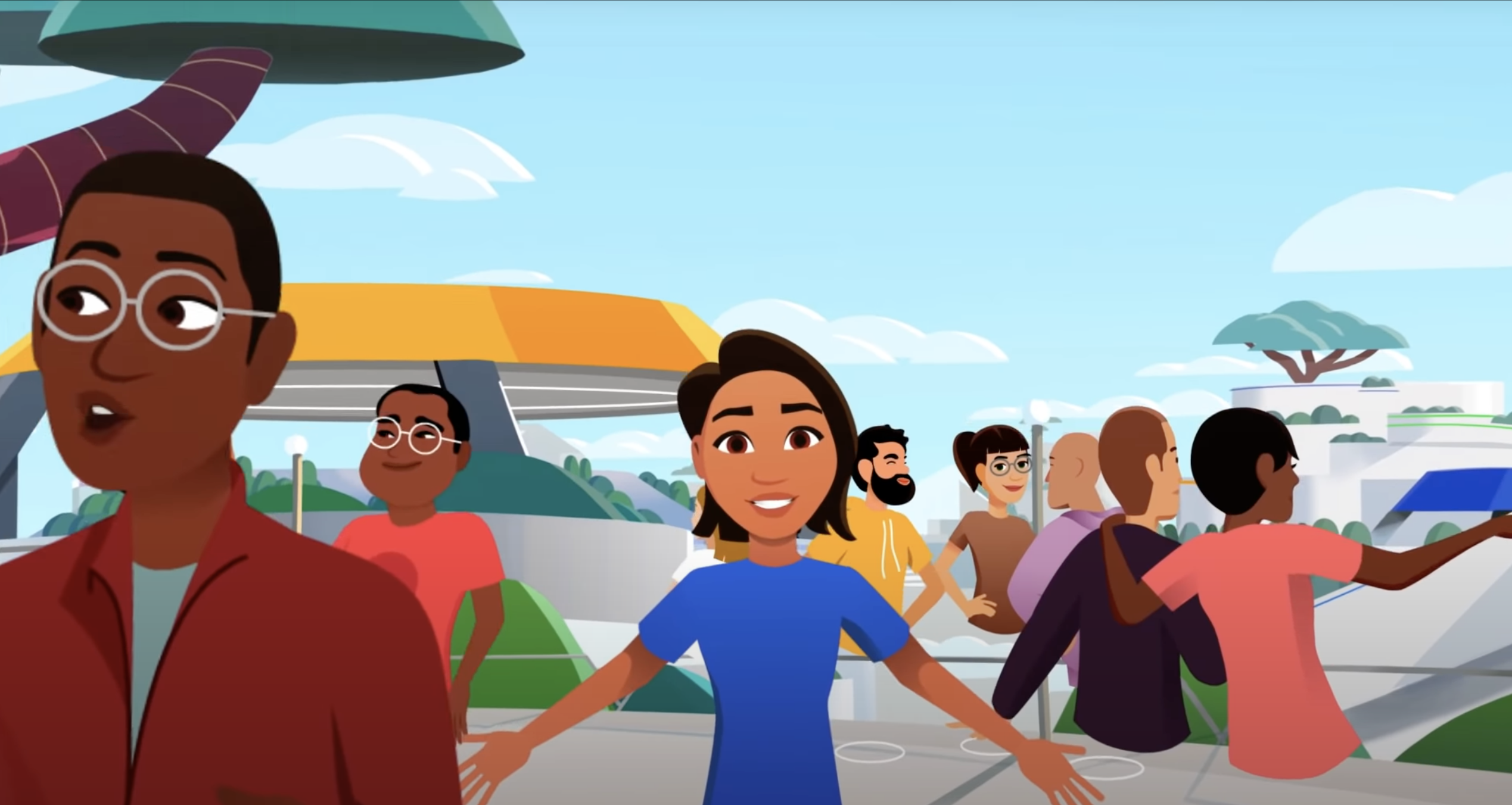This article is from the 36 krypton launchcolumn"Global Corporate Learning Notes". We hope to seek business inspiration and antidote from the experience of global companies. This series will include the interpretation of global companies and the inventory of popular industries, and you are welcome to continue to pay attention.
"We hope that as many people as possible can experience virtual reality and fully integrate into the world of the meta universe. Imagine that in the meta universe, people can go beyond any boundaries and restrictions to any dream place. You can travel with old partners or make a group of new friends. To achieve these experiences is indeed our main livelihood as a technology enterprise and our business. ”-- Mark Zuckerberg, founder of Facebook, an American social media giant, said this in an exclusive interview at the beginning of May this year.
The "meta universe", which became famous due to the Robbox fire, has now become the target of everyone's search. This "virtual world born in the real world, parallel to the real world, interactive, and always online" has successfully attracted the attention of capital and many industry players. Among them, online social networking and game industry players who have touched the ceiling in "form" or "play method" are most sensitive to this. Because the popularity of the "meta universe" will completely overturn the existing online social networking and game industry, making more new social forms and game playing methods possible. For enterprises that can't keep up with the pace, once the "meta universe" is widely used, they may face "disaster".
Facebook, which is based on social networking, is one of the pioneers who are often the first to feel the "crisis". Zuckerberg's enthusiasm for the virtual world has long been no secret. As early as 2014, when Facebook acquired Oculus, a virtual reality company, this move was interpreted by the outside world as Zuckerberg paying for the "future world".
Seven years later, when the concept of "meta universe" moves from novels and movies to reality, people may admire Zuckerberg and Facebook's vision. Especially in the recent period, Facebook has frequently acted in the virtual field, which is even more fascinating. What is Zuckerberg's view of the meta universe? As the technical carrier of the meta universe, where has Facebook gone in its exploration of AR/VR?
Before answering the above questions, let's talk about the growth story of the "meta universe".
"Metauniverse": From Idealism to Reality
Even though it has become one of the hottest words in the world, no one can give a "standard" definition to "Metaverse". In other words, people have not found an absolute consensus on "what the meta universe is". Because with the evolution of the times and technological innovation, the characteristics of the meta universe and the "possibility of appearance" are also changing. However, we can still see something through the growth history of the meta universe and the existing primary form.
As for the origin of the "meta universe", it is generally believed that it originated from the science fiction Snow Crash published by the American science fiction novelist Neal Stephenson in 1992. For Stephenson, the "meta universe" is a space-time parallel to our real world.
This concept seems to be well-known through Steven Spielberg's sci-fi film "Ready Player One". In the film released in 2018, the real world in 2045 is a chaotic purgatory on the verge of collapse. People will place their hopes on the "oasis" - a virtual world in a global free super online game. Just by wearing VR devices, people can enter this prosperous virtual world, which is in sharp contrast with the real world, and become anyone and experience a different life.

By 2021, people will have a more concrete expression of the characteristics and expectations of the "meta universe". Among them, Professor Zhu Jiaming, Chairman of the Academic and Technical Committee of the Digital Assets Research Institute, gave the following explanation for the "meta universe": "In the context of 2021, the connotation of 'meta universe' has absorbed the information revolution, Internet revolution, artificial intelligence revolution, VR, AR, ER, MR, game engine and other virtual reality technology revolution achievements, showing the possibility of building a holographic digital world parallel to the traditional physical world... In short, 'meta universe' provides a new path for human society to achieve the ultimate digital transformation."
As Professor Zhu Jiaming said, today's "meta universe" is going through a process from becoming a mere fantasy to reality. What makes "Metauniverse" come back to people's attention again is the sandbox game platform Roblox, whose market value once exceeded 40 billion US dollars due to a 54% jump in the share price on the day of listing this year. This game platform aimed at American teenagers provides a space for players to play games and develop games. Users (game players and developers) can explore through their virtual identities in the virtual world of Roblox. Based on this idea, Roblox is now widely considered as the representative work of "meta universe". However, from the perspective of people's current expectations for "meta universe", Roblox can only be understood as conforming to some features of the meta universe, rather than a complete meta universe.
As for the "complete meta universe", Forbes made the following explanation in a report: the meta universe will be a shared virtual space, where physical reality will be fully integrated with the digital virtual world, People will have "digital avatars (i.e. virtual people and identities)" (think of Avatar or Top Player, you can be a superhero, a successful person, or a big star) and can "live" in the virtual world entirely through virtual reality (VR) technology, or interact with real physical space with the help of augmented reality (AR) and mixed reality (MR).
If it's complicated, let's give an example. I don't know if you have ever had such an experience. When you see a favorite dress in an online store, you can make up your image after wearing it according to the model's appearance. However, when you try it on with joy, you find it is an embarrassing "seller's show and buyer's show". In the "meta universe", instead of relying on imagination, you can "try on the cloud" with the help of a virtual person who fits you very well, and judge whether this dress is suitable for you through vision. More conveniently, the device will automatically read your thoughts, and when you feel you can buy, the store will automatically place an order. Do you think it is very convenient and practical? However, due to the immaturity of VR, AR and neural interfaces that can read users' ideas, this "virtual reality interconnection" is obviously not yet possible.
However, although the technical barriers need to be broken through, we can still test the "meta universe" based on the characteristics of the meta universe, such as "permanent online", "3D space of virtual reality integration", "people to people or people to things interconnection" and "virtual currency system". Among them, social networking and games are undoubtedly the two most suitable tracks for the above characteristics, which can be seen from the fact that most of the players entering the "meta universe" are games and social enterprises.
In addition to the game companies we are familiar with such as Roblox, there are also such game companies as Saul, who forcefully tied to the "meta universe", Tencent, a technology giant that put forward the concept of the true Internet last year and invested in Roblox and Epic, Nvidia, which has created a virtual 3D workflow platform based on the concept of the "meta universe", and Facebook, the protagonist of our story.
Facebook: Creation of the universe, technology first
As we mentioned at the beginning of the article, Zuckerberg's exploration of the virtual world can be traced back to 2014 or earlier. In July 2014, Facebook invested 2 billion dollars to acquire Oculus. As a social media company, this acquisition can be seen as a key move for Facebook to enter the virtual world. Behind this move, Zuckerberg may be anxious about the current social market and yearning for "future social".
With regard to the current hot social market, Facebook, which was founded in 2004, has faced a "mid life crisis", and has even been described by Gen Z as a "sunset red platform" that has no new ideas and can only survive by acquisition and copying. According to the report of American market research organization Edison Research, from January 2017 to January 2019, Facebook's American users decreased by 15 million. At the same time, young users are rapidly losing. Between 2015 and 2020, the number of users between the ages of 12 and 34 active on Facebook in the United States decreased by nearly 20%.
Indeed, at a time when phenomenal products such as Pinterest, Snpachat, Twitter and LINE are constantly coming out, it is increasingly difficult for knowledgeable consumers to be satisfied. Online social networking players are committed to improving their market influence by adding more functions, playing methods, or "imitating" popular products, but with little success. For example, when Clubhouse became popular around the world by virtue of Musk's "friendship endorsement", almost all players began to do voice communication. However, few products can be remembered by people now. Therefore, the only way to break through the wall and get out of the circle is to rely on a brand new product that completely gets rid of its inherent form and is beyond the real world. "Metauniverse" seems to be the answer, while VR, AR, neural interface and other technologies and related hardware devices are the ticket to enter the virtual world.

In order to open the door to the "meta universe", Facebook quickly deployed VR/AR and other key technologies through acquisition and independent research and development. For a well paid Facebook, compared with independent research and development that requires a lot of manpower, time and money, acquiring core technologies and products through "buy buy buy" is the best way to quickly enter a field, which is also Facebook's consistent policy.
After the acquisition of Oculus in 2014, Facebook has also successively acquired a number of companies in the VR/AR field, including Surreal Vision, a British visual effects and AR technology company, Pebbles, an AR selfie application MSQRD, Beat Games, the publisher of VR action game Beat Saber, Sanzaru Games and Ready at Dawn, and Unit 2 Games, the publisher of Roblox like game Crayta, And Big Box VR, the developer of the recently acquired popular VR "chicken eating" game "POPULATION: ONE".
Compared with "building bricks and tiles" for its own virtual technology through acquisition, Facebook insists on "independence" in operating system, which is more for AR. Regarding the "Reality Operating System" being developed by Facebook, Zuckerberg said recently: "The real operating system will be very different from the existing system in many aspects, such as interaction mode, application mode, content distribution, hardware form and experience." In addition, According to Andrew Bosworth, the person in charge of Facebook Reality Labs, "Facebook needs to optimize the system for the small size of AR glasses to solve problems such as heat dissipation and endurance. Therefore, it needs a customized underlying system instead of directly using Android."
In addition, in order to enhance VR/AR's interaction ability and make its interaction more natural (closer to people's daily behavior), Facebook released the EMG wristband. According to Zuckerberg, in the research of neural interface, Facebook focuses more on identifying the signals sent by the brain to the body/muscle than reading people's specific ideas. With the EMG wristband, people can better control the limbs of the virtual human, further enhance the user's sense of integration in the virtual world, and also better cooperate with AR devices.
Today, Facebook's Quest and Quest 2 products in the VR field have been welcomed by the majority of players. According to the statistics released by Valve in May, Facebook accounts for about 60% of the VR devices worn by Steam platform players. In terms of AR, although Facebook has not officially launched relevant eyewear products, it is just around the corner.
Facebook's "Early Metauniverse": Horizon

Now that the "meta universe" has become the air vent, it is time for Facebook, which already has certain technical capabilities, to accelerate the creation of the "meta universe" in its own field. For Facebook and Zuckerberg at this stage, the "meta universe" is an extension of the game and social ecology.
Among them, Facebook Horizon, a VR social platform launched two years ago, can be regarded as the first milestone for Facebook to explore the "meta universe" world. Although it has not been officially launched, it is currently the closest product to the "meta universe" of Facebook. Regarding Horizon, Zuckerberg said: "For Facebook, Facebook Horizon is the top priority at present, and it will play an important role in helping to build a broader 'meta universe' across VR/AR.".
In fact, before Horizon came out, Facebook used a demo called Toybox to test the VR social field in 2015. Experients appeared in VR in the form of virtual avatars in the demo. At that time, due to technical limitations, the virtual avatars of Toybox players could not accurately simulate human expressions. In 2017, Facebook released Spaces for Oculus Rift, a headworn display. This time, the focus is on the interaction between people. Players can browse the Facebook platform in the application and play small games together. Spaces is also regarded as the predecessor of Facebook Horizon.
Two years later, Facebook released the VR social platform Facebook Horizon on the Oculus Connect 6 developer conference in 2019, and launched the Beta version in 2020. It is understood that this is a social and entertainment platform based on the concept of "meta universe" and realized through VR technology. In the Horizon world created by Facebook, players can create characters according to their own preferences to meet and entertain their friends in real life or new friends they know on the platform.
According to the official and user evaluation videos of Facebook Horizon, after creating their virtual identities (Avatar), players can go to various virtual areas, such as public places - town squares, through the portal called Telepods. You can also select the world created by other players through the Home interface. In different worlds, players can play games provided by space creators, such as doll grabbing machine, secret room escape or Star Wars, with strangers or good friends; Participate in parties or competitions with different themes, such as painting, cooking or golf.

In addition to being a "tourist", players can also create their own world, and Facebook Horizon will provide players with creative tools from the simple to the deep. The creative scope can also range from using a group of simple tools to design 3D portraits to developing elaborate multiplayer games. In addition, players can build the world with others and share their progress in real time through distribution channels.

Some people may think that Horizon and Roblox are the same. Indeed, Horizon and Roblox have some similarities in game experience and creation. However, Horizon based on VR technology is more immersive than game platforms such as Roblox. In addition, Facebook Horizon is more "attentive" to the design of characters. It is understood that Horizon can recognize gestures and expressions, making virtual characters more "humanized".

More importantly, Facebook Horizon focuses on "social interaction", compared with Roblox, which focuses on "games". Among them, players can not only meet their entertainment needs through games, competitions, parties and other activities, but also meet new friends or enhance relationships with old friends. In addition, in terms of "making friends", Facebook Horizon also provides players with the functions such as finding nearby friends, applying to add friends, and blocking friends, which are common in social applications. Players can perform the above operations by simply triggering the function bar at their wrists.

It can be said that Facebook Horizon has well integrated social interaction and games. While helping players to entertain and socialize through the immersive virtual society and completely get rid of the "loneliness" of single player, it has also overturned the limitation that only text, pictures, voice and video can interact in today's online social communication to a certain extent.
Future Journey of Facebook Metauniverse
The emergence of Facebook Horizon has proved the strength of Facebook in subverting the traditional social and entertainment fields to some extent. With the continuous improvement of VR/AR technology, Facebook's exploration and layout in the "meta universe" may not stop in the fields of social and entertainment. As it said when it acquired Oculus, "Oculus' virtual technology has opened up new experiences and possibilities, and has broad imagination space in games, life, education, medical care and other fields, and can even change the whole world." Indeed, in the "meta universe" track where Tencent, Google, Nvidia and other strong rivals have successively entered, we can continue to enrich our wings to become more competitive.
However, Facebook still has a lot of room for growth in its core technologies, whether it is laying out its expertise in social and entertainment fields or exploring more unknown tracks. The ideal can be very rich, but the technology must be excellent. Whether Facebook can become the "number one player" of the Metauniverse remains to be seen.
Wen | Deng Yunxi
Editor | Zhao Xiaochun
Figure | Evaluation Video of Facebook Official Website, Flickr and Station B